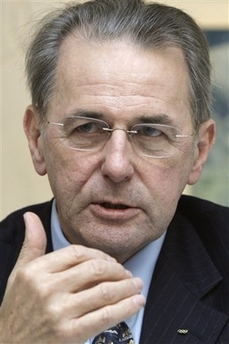IOC calls for common front against match-fixing
(Agencies)
Updated: 2007-12-13 11:00
Updated: 2007-12-13 11:00
LAUSANNE, Switzerland - International Olympic Committee (IOC) president Jacques Rogge called on Wednesday for a united front with the international sports federations to combat the problem of match-fixing.
Illegal betting and match-fixing allegations have afflicted soccer, tennis and cricket.
"This is something we have to address," Rogge told reporters after an executive board meeting. "The purpose of the IOC is to have a common approach to that with all international sports federations and the national Olympic committees. This is what we did in the fight against doping."
The IOC heard on Wednesday a report from Paul Condon, a former head of the International Cricket Council's anti-corruption and security unit.
Rogge said Condon advised sports bodies to enforce regulations aginst illegal betting and match-fixing, educate and monitor through alliances with bona fide betting companies.
"Bona fide betting companies can give us early warning of abnormal betting patterns," Rogge said, adding a deal with a betting firm could be clinched before next year's Beijing Games if it were deemed necessary.
Condon earlier told reporters the Olympics were not a high-risk target for match-fixing and illegal betting.
"I don't see the Olympics as a particularly high-risk target," Condon said. "There is no reason based on intelligence that the Olympics are a potential target. Bad guys can go to other events,"
PINNACLE
He said athletes competing at the Games were at the "pinnacle of their careers" and therefore more unlikely to fix results.
"I think they (IOC) have made it clear that all participants in the Beijing Olympics are prohibited from betting on sports," he said.
This week Indian police questioned former South Africa left-arm spinner Nicky Boje in connection with the 2000 match-fixing scandal which led to a life ban for former captain Hansie Cronje.
Condon said the rise in cheating through betting was a result of rules allowing betting on who would lose a match, making it more lucrative to throw a match than win it.
Men's tennis has also been hit this year by allegations of match-fixing, with a number of players saying they had been offered money to throw matches. They all said they had rebuffed the offers.
The European football's governing body UEFA also said it had forwarded a dossier containing information on 15 matches to European police.
UEFA said the matches had been brought to their attention because of irregular betting patterns rather than any hard evidence of wrongdoing by any of the clubs involved.
|
|
|
||
|
||
|
|
|
|
